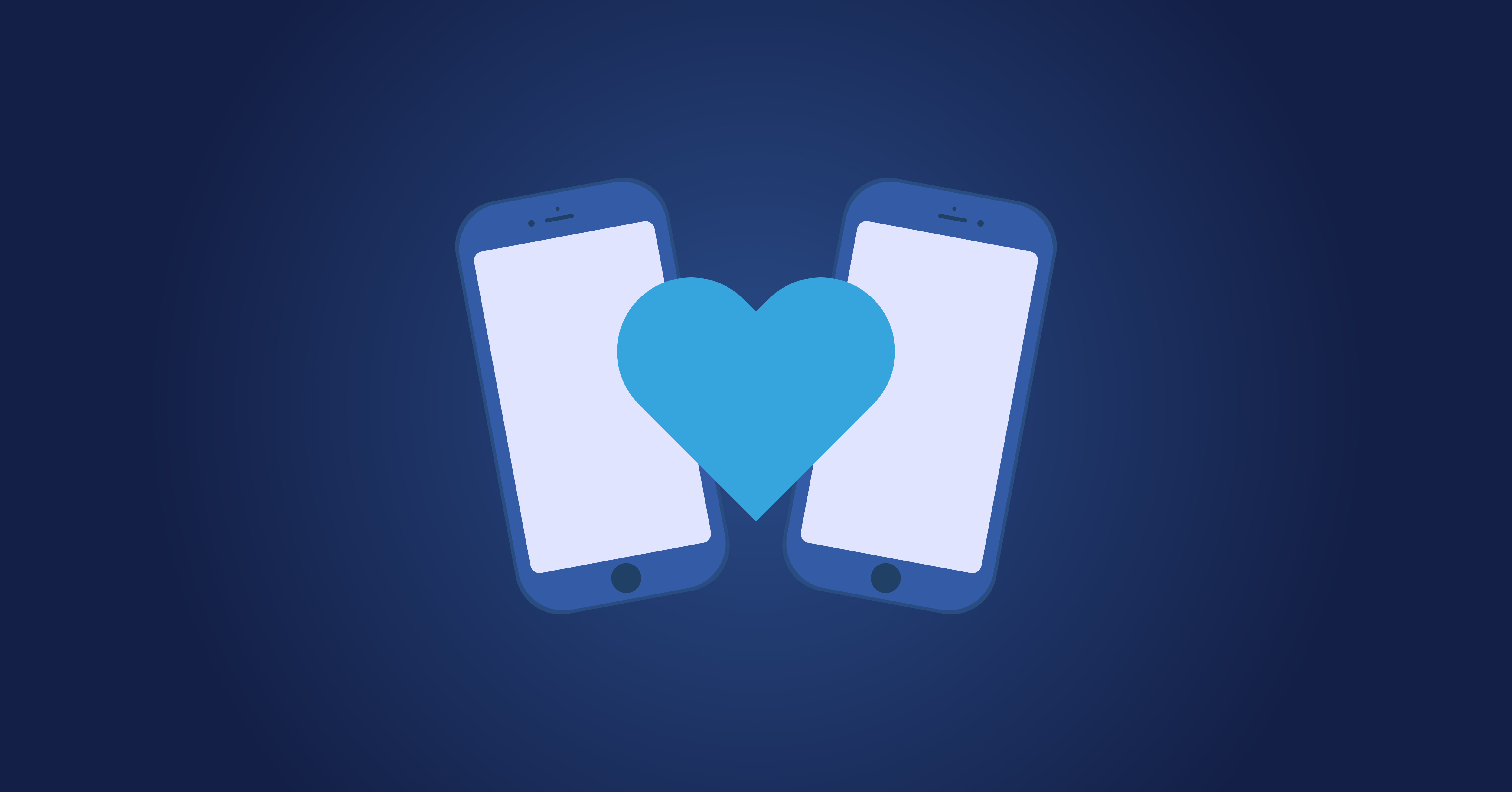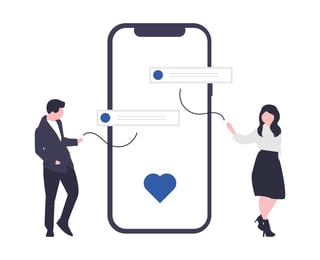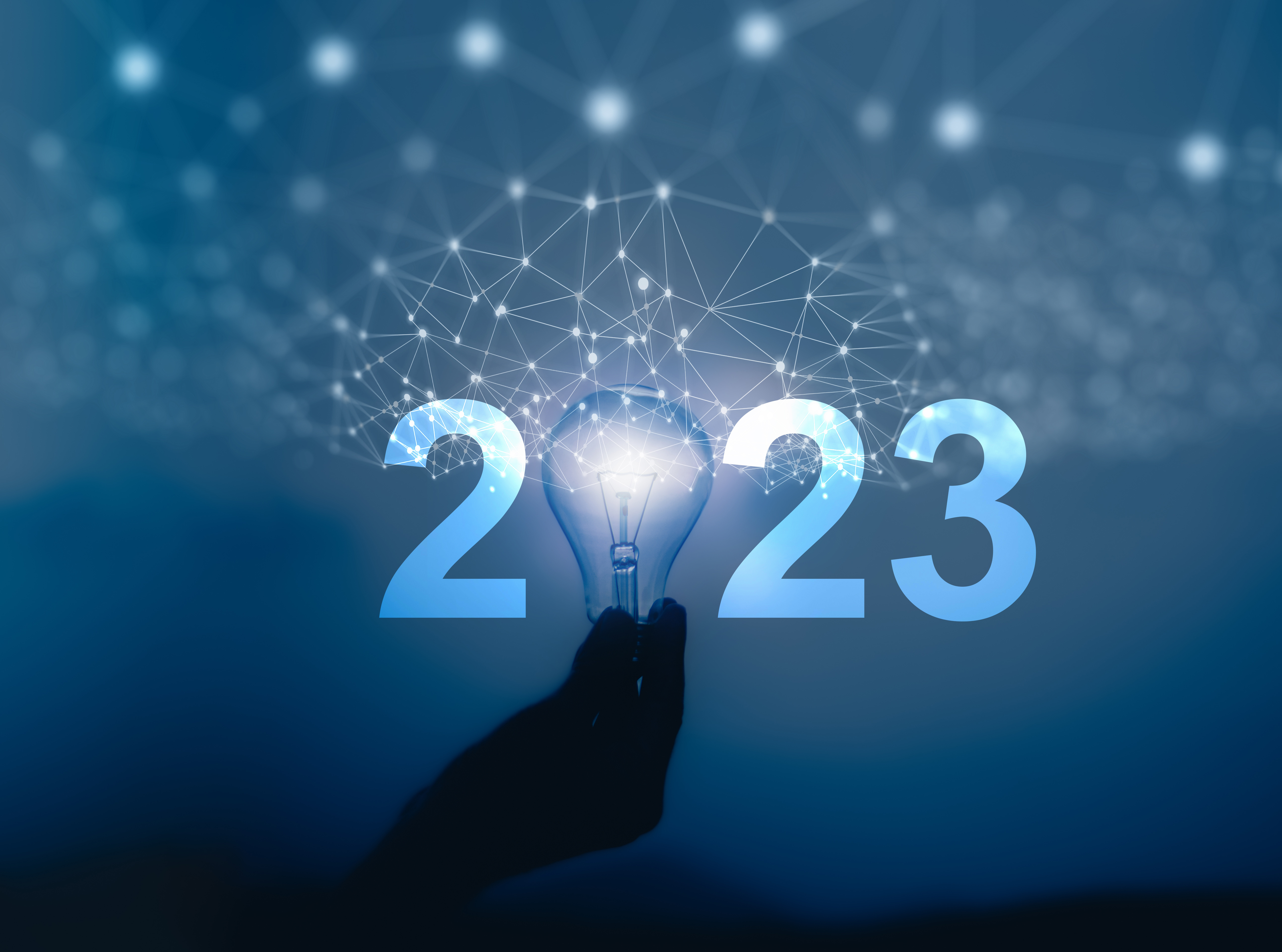Dating Apps, Digital Identity, and a Pandemic - A Gen Z Perspective.

Online dating has grown to become a popular way for people to meet. Dating apps were not very common until Tinder became available to smartphones users in 2013. Tinder has shifted dating culture, which has allowed people of all sexualities to find love, dates, or hook ups at their fingertips. The popularity of Tinder has led to the development of many more dating apps and an increase in users.
Roughly 40% of Americans use online dating, 53% of which lie on their profile. As of 2020, there were over 270 million users of dating apps, making the accuracy of information users share on their profiles unknown. Global dating app revenue soared from a $1.69bn industry in 2015, to a $3.08bn industry in 2020, and the projections for the next five years take the revenue to $5.71bn. With all this money being pumped into the industry, are enough steps being taken to protect users and their digital identity?
Catfishing

Ever since dating apps have been introduced, catfishing has been a digital identity issue. Catfishing is when one creates an identity online that is fake and pretends to be someone else to lure someone into a sense of security, or even a relationship. Dating apps have been accused of enabling catfishing and an investigation was launched in January 2020 by Raja Krishnamoorthi, to help protect children from any dangerous acts on dating apps. The problem is that the age verification on dating apps is not strict, and it puts children in harm’s way. This can include the intentional misinterpretation about: their image, age, occupation, and other factors of their lives. From a study conducted in 2020, 917 women and 190 men were sampled. From these sample sizes, 23% of the women and 38% of the men admitted that they had perpetrated catfishing, meaning they had catfished someone else. This issue has only risen since the start of the pandemic because people were not able to meet for in-person dates. Dating apps such as Tinder and Bumble have implemented a verified “blue tick” feature where you can submit photos to verify your account, but this process is flawed as it can take days or weeks to get your profile verified. By implementing a digital identity verification software, many (if not all) of the nefarious outcomes resulting from catfishing could be avoided.
Dating During a Pandemic
The ability to verify one’s digital identity has become even more pertinent for ‘online romancers’ in the time of Covid-19. Many dating apps, including Tinder, Match, and Hinge, are collaborating with the government to proliferate the notion of societal responsibility as it relates to getting your Covid vaccination. These apps allow vaccinated individuals to sport a sticker on their profile, and in exchange offer increased visibility and perks that would otherwise be reserved for paying subscribers. With these wonderful benefits, and the data suggesting that those with a vaccine sticker receive 14% higher like rates, who wouldn’t want to claim their vaccination badge?
And that is precisely the problem.
The data shows that 57% of people lie about their online dating profile, and one’s Covid status is certainly no exception. With no way to verify someone's vaccination claim, many people are taking advantage of these platforms and misleading the people they are connecting with. This very well may have some dangerous consequences for at-risk individuals who are meeting up with someone who has lied about their personal health information (PHI). The question of whether these sites should encourage this type of PHI is up for debate, but one thing seems quite clear; if they are going to have it, they should be able to verify it.
The principles of trust apply even more in this new world of virtual dating
Is There More That Could Be Done?
Given the incidence of dating app users falsifying their profiles to protect their true identity, we know that young adults are conscious and careful of the dangers that online dating poses. When someone is perusing their app, they want to be able to verify that their crush is actually who they think they are. As consumers become more privacy focused it will become increasingly important for dating apps to maintain a safe and trusted user experience if they are to retain a strong presence in today’s society. The principles of trust apply even more in this new world of virtual dating and it is the responsibility of online dating platforms to ensure that their users have a positive space for people to connect. With so many technologies and software on the market today, data privacy and digital identity is a hot topic, so the question has to be asked why haven't these companies already started taking the proper precautions to protect their users? A simple ID scan or selfie verification software would aid in verifying users’ identities and in turn help elevate the level of trust surrounding dating apps and ensure the safety of its users without compromising their privacy.
This piece was co-written by two current interns at Verif-y;
Dalton Signor, and Selena Wang.


.png)